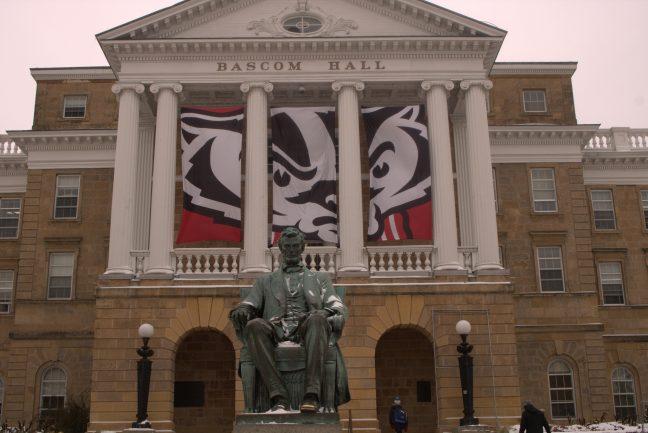Black History Month is a celebration of the achievements of Black leaders and Black community members around the country.
But the month of February is also a time of reflection for many students with a passion for Black history, University of Wisconsin African American studies lecturer Alexander Shashko said.
Though some students are passionate about the topic, others arrive at UW with varying levels of experience with or knowledge about Black history, Shashko said.
As a professor of 100 and 200 level courses, Shashko sees students who already know about African American history or are excited to learn more, students who know a fair amount of American history but not as much in the context of African American history and students who haven’t had a history class for two to three years with elementary knowledge.
Shashko said this is due to little nation-wide regulation on teaching history in public schools.
“It falls to the individual school districts to make determinations about what gets learned and how it gets learned,” Shashko said. “In that sense, different parts of the country have had different priorities about what history they teach and when they teach it.”
The lack of teaching of Black history erases the impact Black leaders have had on Wisconsin communities, and leaves Black students without factual representation in American history, according to an article from The Badger Herald.
Further, the teaching of Black history has discrepancies across the country because it doesn’t appear on standardized tests, Shashko said. Because of this, topics that won’t be tested on are often neglected in the classroom.
Associated Students of Madison Chair Ndemazea Fonkem said her experience learning about Black history growing up in Appleton, Wisconsin differed greatly from what she observes from other UW students.
Fonkem mentioned an Appleton-based organization called African Heritage Inc. which focuses on teaching Black history all year, and said growing up in an area that made an effort to teach Black history year-round makes UW’s efforts for Black History Month seem performative.
“I think that I grew up in an area that actually tried really hard to celebrate Black history, Black History Month and Black history in general,” Fonkem said. “The community used to be a sundown town until the 80s and it doesn’t shy away from that history, and I think it has a lot of people who care a lot about making sure that the history is exposed.”
Fonkem referenced a flyer from the Office of the Secretary of University Staff meant to celebrate Black History Month which featured a quote from President Joe Biden. She said this was an example of white people being at the center of university efforts to celebrate Black pride.
Fonkem said that if a presidential quote was needed, Former President Barack Obama or Vice President Kamala Harris would have been more appropriate choices for a flyer displayed to the student body.
UW Director of Media Relations and Strategic Communications Kelly Tyrrell said in an email statement to The Badger Herald that UW’s Black History Month celebrations are student-led and are meant to create a space for Black students to celebrate.
“The primary focus of the celebration is to center the voices and perspectives of UW–Madison’s Black community while providing space for students to celebrate Black culture, history, and identity,” Tyrrell said.
Tyrrell also wrote that 12 of UW’s schools, including the College of Engineering, the College of Letters & Science and the School of Medicine and Public Health, have hired equity, diversity, inclusion and belonging officers to help meet the needs of students on campus.
Fonkem said that hiring Black people would help UW efforts to connect with the Black community feel more genuine, citing that Black faculty members make up less than 3% of UW staff.
“I don’t think I’ve had a Black professor, I’ve never had a Black teacher, I’ve never had a black TA, so hire those people and don’t just hire them to be Equity Inclusion Directors,” Fonkem said.
According to UW’s Data Digest 2021-2022, 2.66% of UW staff, including faculty, post-degree training staff and graduate assistants, identify as Black or African American. This does not include those who consider themselves to be two or more races.
Shashko said he believes UW is doing a good job of highlighting and hosting activities during Black History Month through supporting organizations that want to host events, whether it be lectures, panels or performances.
Shashko said after COVID-19, many student organizations are just getting back on their feet and starting to host events again, which can affect effect available programming available for students during Black History Month.
“I don’t think you can absolutely judge what’s going on on campus right now with Black History Month or any other event because I think it’s just going to take some time for those events to fully feel like they are being run the way that they were before,” Shashko said.
This year’s theme for Black History Month is “Black Arts: Multiple Mediums, One Story,” which aims to celebrate Black contributions to art throughout history, according to Black History Month’s page on the Student Affairs website.


